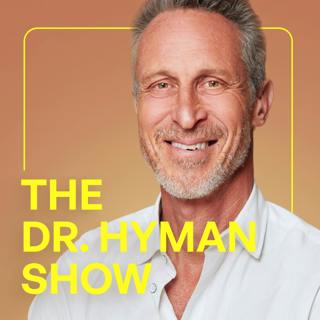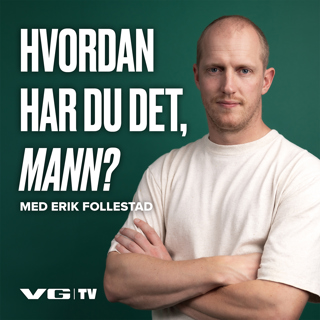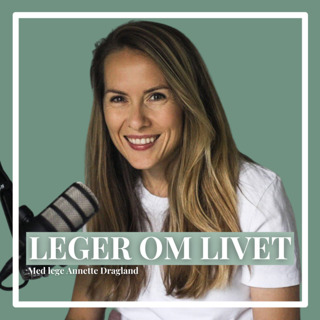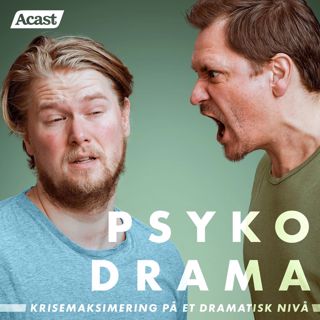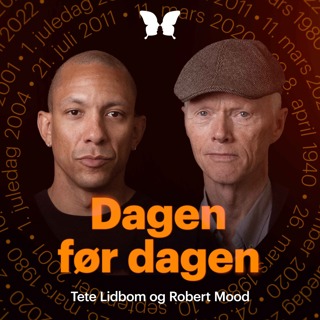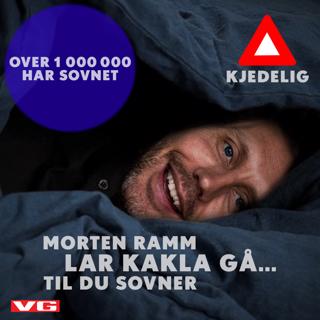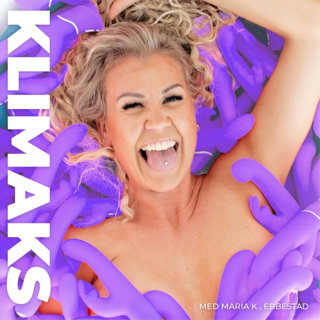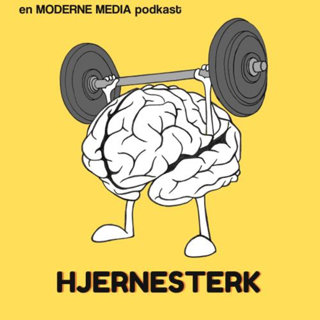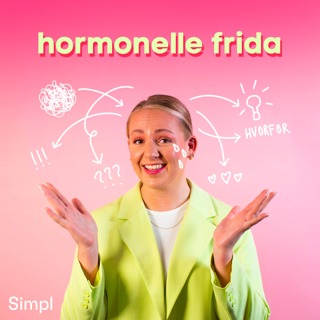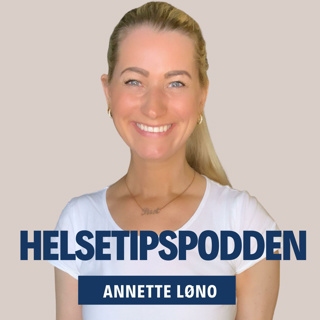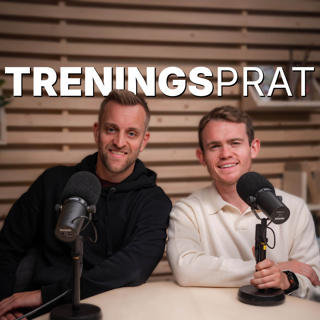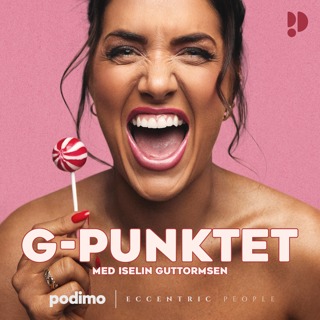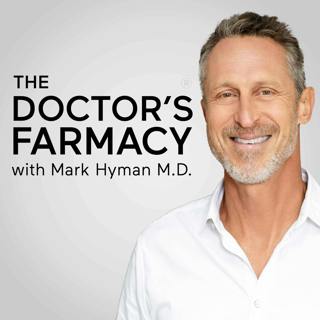
COVID-19: Where Are We Now And Where Do We Go From Here? with Dr. Steven Gordon
While we can’t be sure what’s in store for us with the future of COVID-19, we can try to learn from the past to tackle this situation in the smartest way possible. That means looking at previous infectious disease epidemics and understanding zoonotic diseases like this one, that are passed from animals to humans, and how they’re different from the other pandemic diseases we’ve been able to eradicate. I was excited to connect with Dr. Steven Gordon to dig into these topics deeper, today on The Doctor’s Farmacy. Dr. Gordon is the Chairman of the Department of Infectious Diseases at the Cleveland Clinic Foundation and Professor of Medicine at the Lerner College of Medicine at Case Western University. His clinical interests include infective endocarditis including cardiac electronic implantable device infections as well as opportunistic infections in immunocompromised patients. He is a Fellow in the American College of Internal Medicine and a Member of the Infectious Disease Society of America. Dr. Gordon is the person to talk to when it comes to gaining a better understanding of infectious diseases. He explains some of the unique characteristics of SARS-CoV-2 and how they will dictate the way we move forward with healthcare and as a society in the coming years. The good news is that Dr. Gordon has a positive outlook about our ability to cope with COVID-19. *For context, this episode was conducted on May 1, 2020 Here are more of the details from our interview: Lessons learned from previous infectious disease epidemics (3:11) Unique characteristics of SARS-CoV-2 and how they will influence our ability to move forward as a society over the next few years (6:12) Evaluating infection rates, antibody testing, and mortality rates (9:39) Do we need widespread testing, and is it even possible? (12:02) Why are some locations affected more than others by coronavirus? (13:53) Treatments for COVID-19, what we’ve tried and what might be coming (18:44) Why a COVID-19 vaccine might not be the magic bullet we’ve been waiting for (22:51) Wearing masks and other culture change for effective COVID-19 prevention (31:18) Dr. Gordon’s coronavirus projections for the next two years (35:33) Can you get COVID-19 more than once? (38:28) How healthcare could improve if 5G and internet were a free utility for all (46:27)
11 Mai 202057min

The Real Reasons We Have Trouble Sleeping with Dr. Todd LePine
Functional Medicine is all about looking at the way our systems function together, rather than focusing on one part of the body at a time. The steps you take to support whole-body health work in the same way. Diet, exercise, stress reduction—they simultaneously affect more than just one aspect of your health—and new research has revealed that choices around these things can have major impacts on our sleep, and how that cycles back to support overall optimal health. In this episode I sit down with Dr. Todd LePine to discuss why so many of us experience issues related to our sleep and what we can do about it. Dr. LePine graduated from Dartmouth Medical School and is Board Certified in Internal Medicine, specializing in Integrative Functional Medicine. He is an Institute for Functional Medicine Certified Practitioner. Prior to joining The UltraWellness Center, he worked as a physician at Canyon Ranch in Lenox, MA, for 10 years. Dr. LePine’s focus at The UltraWellness Center is to help his patients achieve optimal health and vitality by restoring the natural balance to both the mind and the body. His areas of interest include optimal aging, bio-detoxification, functional gastrointestinal health, systemic inflammation, autoimmune disorders and the neurobiology of mood and cognitive disorders. Dr. LePine teaches around the world, and has given lectures to doctors and patients at American College for Advancement in Medicine (ACAM), Age Management Medicine Group (AMMG), the University of Miami Integrative Medicine Conference, The Kripalu Center in Lenox, MA, and is on the faculty for American Academy of Anti-Aging Medicine (A4M). Dr. LePine is the head of the Scientific Advisory Board for Designs for Health and a consultant for Diagnostic Solutions Laboratory. He enjoys skiing, kayaking, hiking, camping and golfing in the beautiful Berkshires, and is a fitness enthusiast. This episode is sponsored by my Sleep Master Class. In this modern world we place too much value on staying busy and deprioritizing sleep, which is why I have created my first ever Master Class. It guides you through the most important steps to getting better sleep, starting today. To learn more about the Sleep Master Class, head over to drhyman.com/sleep In this episode, Dr. Hyman and Dr. LePine discuss: The value in asking if you are waking up refreshed How artificial light at night disrupts hormones and sleep The importance of getting exposure to natural light in the morning How side effects from medication, caffeine, alcohol, eating late at night, and environmental toxins can all affect sleep Sleep hygiene routines The link between temperature and sleep Consequences of chronic sleep deprivation Sleep and the immune system EMFs (or electric and magnetic fields) and their effects on our physiology Additional treatments for sleep issues For more information visit drhyman.com/uwc Products mentioned in this episode: TrueDark https://truedark.com/ Purity Coffee https://puritycoffee.com/ Oura Ring https://ouraring.com/ Chili https://www.chilitechnology.com/ 10-Day Reset https://getfarmacy.com/ Additional Resources: “Your Brain and Immunity: The Fascinating Connection You Need to Nurture” https://ultrawellnesscenter.com/2019/06/04/your-brain-and-immunity-the-fascinating-connection-you-need-to-nurture/ “Magical Magnesium” https://ultrawellnesscenter.com/2020/03/11/magic-magnesium/ “5 Strategies for Better Sleep” https://ultrawellnesscenter.com/2020/03/19/5-strategies-for-better-sleep-2/ “Why is my teenager so tired?: A personal story” https://ultrawellnesscenter.com/2018/09/25/why-is-my-teenager-so-tired-a-personal-story/ “8 Simple Hacks for a Better Night's Sleep” https://drhyman.com/blog/2016/04/13/8-simple-hacks-for-a-better-nights-sleep/ “Sleep Heals” https://drhyman.com/blog/2018/12/20/sleep-heals/ “Is Coffee Good or Bad for You?” https://drhyman.com/blog/2016/07/14/is-coffee-good-or-bad-for-you/ “Food Bites with Dr. Hyman – Nighttime Snacking” https://drhyman.com/blog/2015/05/15/food-bites-with-dr-hyman-nighttime-snacking/ “Food Bites with Dr. Hyman – What can I do to stay asleep and sleep more deeply?” https://drhyman.com/blog/2015/02/05/food-bites-dr-hyman-can-stay-asleep-sleep-deeply/ “Is There An Antidote to Stress?” https://drhyman.com/blog/2019/12/31/podcast-ep87/ Hosted on Acast. See acast.com/privacy for more information.
8 Mai 202032min

How To Upgrade Your Brain And Learn Faster with Jim Kwik
When’s the last time you remembered a new phone number? This used to be the norm, but now most of us rely on our digital devices for everything from phone numbers to directions and even basic math. This might feel harmless but it’s actually doing our brains a disservice. We’re living in an age of digital dementia, because we don’t have to rely on our brains for the memorization and navigation we used to. But it doesn’t have to be that way—we can retrain ourselves to learn faster, retain information better, and really maximize our time spent learning. The secret is meta-learning, or the science of learning how to learn. There’s no better person to dive into this topic than Jim Kiwk, my guest today on The Doctor’s Farmacy. Jim is the founder of Kwik Learning and a widely recognized world expert in speed-reading, memory improvement, brain performance, and accelerated learning. For over two decades he has served as the brain coach to many of the world’s leading C-suite executives and celebrities. After a childhood brain injury left him learning-challenged, Jim created strategies to dramatically enhance his mental performance. He has since dedicated his life to helping others unleash their true brainpower to learn faster and perform smarter. His recent book, Limitless, provides the keys to accelerated learning and endless potential This episode is sponsored by my Sleep Master Class and Joovv. In this modern world we place too much value on staying busy and deprioritizing sleep which is why I have created my first ever Masterclass which guides you through the most important steps to getting better sleep today. To learn more about the sleep masterclass, head over to drhyman.com/sleep. Sign-up today to watch the first three lessons of the sleep masterclass for free. Here are more of the details from our interview (video / audio): Jim’s brain injury at the age of 5 and how it affected him throughout his childhood education and beyond (8:26) How technology is driving information overload, digital deluge, digital distraction, digital dementia, and digital deduction (12:03) Who we spend time with is who we become (17:10) How we grow is connected to how we learn (19:05) Investment in knowledge pays the most in dividends (20:30) The value of learning how to learn (21:45) The Limitless Model to learn and achieve anything faster; and how mindset, motivation, and method can act as constraints between where you are and where you want to be (24:21) Debunking lies that limit people from speed reading (38:30) How to read a book a week (41:20) Why Jim’s speed reading method works (50:47) Get a copy of Jim’s book, Limitless: Upgrade Your Brain, Learn Anything Faster, and Unlock Your Exceptional Life at https://www.limitlessbook.com/ Find Jim online at https://jimkwik.com and follow him on Facebook @kwiklearning, on Twitter @kwiklearning, and on Instagram @jimkwik
6 Mai 202059min

How Diet Is Driving COVID-19 Outcomes with Dr. Aseem Malhotra
As we continue to learn more about COVID-19, we continue to see a pattern in those more at risk. People who aren’t metabolically healthy (think obesity, type 2 diabetes, cardiovascular disease, and hypertension) are much more likely to experience severe complications if they are to get the virus. And to put that in perspective, only 1 in 8 Americans are considered metabolically healthy. That means a lot of us are at risk during this already alarming time. We can start changing that today, though, and create a newfound health baseline while creating a greater level of resilience when it comes to chronic disease and future situations like this. The US isn’t the only place dealing with an epidemic of obesity and other metabolic diseases. The UK and other parts of the world are also struggling, thanks to the spread of the ultra-processed food and a sedentary lifestyle. On this episode of The Doctor’s Farmacy, I’m joined by Dr. Aseem Malhotra to talk about the impact COVID-19 is having on the UK, the risks that metabolic diseases pose with the virus, and much more. Dr. Aseem Malhotra is a founding member of Action on Sugar and was the lead campaigner highlighting the harm caused by excess sugar consumption in the United Kingdom, particularly its role in type 2 diabetes and obesity. His first book, co-authored with Donal O' Neill, The Pioppi Diet, has become an international bestseller. *For context, this episode was recorded on April 24, 2020 Here are more of the details from our interview: Metabolic disease, excess body fat, and chronic inflammation lead to worse outcomes from COVID-19, as well as from the flu (5:13) Dr. Aseem’s personal experience with belly fat and excessive sugar intake (13:53) Five markers to assess metabolic health (17:49) Risks associated with sarcopenic obesity and loss of muscle mass, especially among older people (21:30) Health disparities and COVID-19 outcomes (25:24) Why the idea of personal responsibility is fundamentally flawed when it comes to our current food environment, including the food environment in hospitals (27:51) The role of public health interventions in improving life expectancy (34:11) What is ultra processed food? (40:56) Dr. Malhotra’s diet recommendations for combating inflammation and preventing insulin resistance (43:30) Eating healthier on a budget, how policy can make healthier foods more affordable, and the Environmental Working Group’s Good Food On A Tight Budget Shopping Guide (48:04) Learn more about Dr. Aseem Malhotra at http://doctoraseem.com/. Follow him on Facebook @aseem.malhotra.98, on Instagram @lifestylemedicinedoctor, and on Twitter @draseemmalhotra.
4 Mai 20201h 6min

Is Anxiety All in Your Head, Or Is It In Your Body? with Dr. George Papanicolaou
The body and brain are one interconnected system, which means you can’t treat anxiety effectively by using only drugs or psychotherapy. You need to treat the body, because the body and brain are one interconnected system. Unfortunately, conventional medicine plays the name and blame game. It says, you are “anxious;” you need an “anti-anxiety” medication. But saying you are anxious explains nothing about why you have anxiety. Functional Medicine takes a different approach. By taking a detailed history and personalized approach, it seeks to get to the root of the issue. In this episode, Dr. Hyman sits down with his colleague, Dr. George Papanicolaou, to discuss how they treat patients suffering with anxiety. George Papanicolaou is a graduate of the Philadelphia College of Osteopathic Medicine and is Board Certified in Family Medicine from Abington Memorial Hospital. He is also an Institute for Functional Medicine Practitioner. Upon graduation from his residency he joined the Indian Health Service. He worked on the Navajo reservation for 4 years at the Chinle Comprehensive Medical Facility where he served as the Outpatient Department Coordinator. In 2000, he founded Cornerstone Family Practice in Rowley, MA. He practiced with a philosophy centered on personal relationships and treating the whole person, not just not the disease. He called that philosophy “Whole Life Wellness”. Over time as the healthcare system made it harder for patients to receive this kind of personal care Dr. Papanicolaou decided a change was needed. He began training in Functional Medicine through the Institute of Functional Medicine. In 2015, he established Cornerstone Personal Health – a practice dedicated entirely to Functional Medicine. Dr. Papanicolaou to join The UltraWellness Center in 2017. This episode is sponsored by AirDoctor. We need clean air not only to live but to create vibrant health and protect ourselves and loved ones from toxin exposure and disease. Learn more about the AirDoctor Professional Air Purifier system at a special price at www.drhyman.com/filter In this conversation, Dr. Hyman and Dr. Papanicolaou discuss: The conventional medicine vs Functional Medicine approach to treating anxiety Why making yourself more psychologically resilient makes you more physically resilient How Dr. Papanicolaou treated a patient with panic attacks, difficulty focusing, and bloating DNA testing to determine how your genes might be influencing anxiety How gut issues, including SIBO, IBS, and gluten sensitivity, can lead to anxiety Urine peptide testing How Dr. Papanicolaou treated a patient with, anxiety, brain fog, hair loss, and fatigue How anxiety can be related to hormones and autoimmune issues For more information visit drhyman.com/uwc
1 Mai 202057min

Why Loneliness Is A Public Health Issue with Dr. Vivek Murthy
When we think about health, we usually think about diet and exercise. We think about the things we are doing for our physical body to promote wellness. But what about the things we can’t see? Relationships are a big one. For example. committing just ten to fifteen minutes a day to talking to someone we love is a powerful way to keep ourselves happy and connected, especially now during this time of coronavirus quarantine. Today on The Doctor’s Farmacy, I talk with Dr. Vivek Murthy about nurturing greater connection and what it means for our health. Dr. Murthy served as the 19th Surgeon General of the United States between 2014-2017. As the Vice Admiral of the US Public Health Service Commissioned Corps, he commanded a uniformed service of 6,600 public health officers globally. During his tenure, Dr. Murthy launched the TurnTheTide campaign, catalyzing a movement among health professionals to address the nation’s opioid crisis. He also issued the first Surgeon General’s Report on Alcohol, Drugs, and Health, calling for expanded access to prevention and treatment and for recognizing addiction as a chronic illness, not a character flaw. In 2017, Dr. Murthy focused his attention on chronic stress and loneliness as prevalent problems that have profound implications for health, productivity, and happiness. His book Together: The Healing Power of Human Connection in a Sometimes Lonely World was just published on April 28th. *For context, this episode was recorded in February 2020. This episode is sponsored by Simple Mills and Branch Basics. There are definitely not many baking mixes out there I trust. Simple Mills is an exception because they use real-food ingredients. Having a few boxes of Simple Mills mixes on hand is an easy kitchen hack for healthier baking on those days you just need a little extra help. Now until May 29th, 2020 you can get 20% off at simplemills.com using the code DRHYMAN20. Branch Basics makes a biodegradable, non-GMO, fragrance-free, multi-purpose concentrate that can clean everything in your house safely. You can honestly use it for anything - in the kitchen or bathroom or even for laundry or cleaning your wood floors. Right now Branch Basics is offering 15% off their Starter Kit, just go to branchbasics.com and use the code HYMAN15 at checkout. Here are more of the details from our interview: How Dr. Murthy came to focus on loneliness (9:04) The science behind loneliness and its impact on our health (14:24) Why we don’t always see the loneliness that exists around us (19:22) Loneliness and its connection to addiction (20:45) Building connection through love and kindness (29:51) Steps we can take in our individual lives to combat loneliness and build a connected life (37:36) Shifting culture to a society that focuses on people over reputation, power, and wealth (42:27) Our connection to other people is built on having a strong connection to ourselves (44:01) Why we often struggle with loneliness in the workplace (45:22) Getting over the obstacles that keep us from investing in connection in our own lives (48:54) Learn more about Dr. Murthy at www.vivekmurthy.com and get a copy of his book, “Together: The Healing Power of Human Connection in a Sometimes Lonely World” at https://www.vivekmurthy.com/together-book Follow Dr. Murthy on Facebook @drvivekmurthy, on Instagram @drvivekmurthy, and on Twitter @vivek_murthy
29 Apr 202057min

How To Improve School Lunches, Grades, And Behavior At No Extra Cost with Jill Shah
One in three children born today will develop type 2 diabetes and four out of ten will be overweight. There’s a fundamental problem happening around our country when it comes to how we feed our kids and the lifelong health risks they face as a result. When we think about fixing the problem, it makes sense to look at our schools. In Boston, for example, 30,000 children a day rely on the school food system for 2 to 3 meals a day. That gives the educational system a lot of power to change the nutritional profile of our children’s diets with real food, but unfortunately, many districts are stuck relying on packaged and processed options. Certain groups are making some amazing positive changes, though, by installing real school kitchens that serve real food. My friend Jill Shah, who joined me for this episode of The Doctor’s Farmacy, has led that fight in the Boston public school system with incredible results. Jill Shah is the President of the Shah Family Foundation, which supports innovative and transformative work where education, healthcare, and community intersect in the city of Boston. The foundation’s primary work and support is centered on Boston’s schools and community organizations, with the goal of sharing broadly the programs and solutions that prove successful. Jill’s civic interests include healthy food in schools, food access in high-needs neighborhoods, rigorous and successful public schools for all kids, and a deeper collaboration between education and healthcare around issues of physical, mental, emotional, and social health. *For context, this interview was recorded on March 31, 2020 Here are more of the details from our interview: School food programs during school closings from COVID-19 (3:36) The experience that led Jill to work on school food program reform in Boston (7:34) Serving whole, real food in schools costs less, employs more people, and is completely scalable (10:58) National policy rollbacks of guidelines implemented during the Obama administration (17:58) Improvements in children’s health, behavior, and academic performance (21:01) The role of local governments in addressing school food programs (25:22) How school food program reform can support local economies (30:32) Dealing with competitive foods in schools (33:00) Getting My Way Cafe into your local school system (41:49) Branding My Way Cafe as a lever for change (44:25) Learn more about My Way Cafe and reforming school food programs at mywaycafe.org and shahfoundation.org Find the documentary Eat Up at eatupfilm.com
27 Apr 202054min

Why Food Is More Powerful Medicine Than Drugs with Maggie Ward
Mounting research shows that there is no magic bullet to treat heart disease, cancer, diabetes, Alzheimer’s disease, arthritis, allergies, digestive disorders, headaches, fatigue, or any of the myriad problems we suffer from in the 21st century. But increasing evidence also shows us something else. It shows that food is the most powerful “drug” we have not just to prevent, but also treat, cure, and reverse most chronic illnesses. Food contains information that speaks to our genes, not just calories for energy. What you eat programs your body with messages of health or illness. We are learning from research in the field of nutrigenomics, that food “talks” to our DNA switching on or off genes that lead to health or disease. In this mini-episode, Dr. Hyman speaks with Maggie Ward about the nutrition-focused appointments she conducts at The UltraWellness Center, and the power of treating people with food. Maggie Ward, MS, RD, LDN, is the Nutrition Director at The UltraWellness Center. Maggie holds a masters degree in Nutrition from Bastyr University which focuses on using whole foods for holistic Nutrition Therapy. In addition, she completed her requirements to become a registered dietitian at Westchester Medical Center in NY. Prior to joining The UltraWellness Center team in 2008, Maggie worked at The Brooklyn Hospital Center in New York providing nutrition counseling to children and families dealing with HIV. She also taught at the Jewish Community Center in Manhattan and other sites throughout New York City, teaching nutritionally focused cooking classes for children and adults.Much of her focus is on food allergies, digestive disorders, inflammatory conditions, Pediatrics and Sports Nutrition. Maggie has been counseling individuals, families and business groups on therapeutic diets to address various health concerns for more than 15 years. Her ongoing clinical training through the Institute for Functional Medicine uses a systems biology approach when working with those who suffer from chronic and acute conditions to help them find their path to healing. She has a passion for cooking and reconnecting people with their potential to heal using whole, organic and local foods. This episode is sponsored by AirDoctor. We need clean air not only to live but to create vibrant health and protect ourselves and loved ones from toxin exposure and disease. Learn more about the AirDoctor Professional Air Purifier system at a special price at www.drhyman.com/filter In this episode Dr. Hyman and Maggie discuss: Foods that frequently cause reflux and digestive issues, including dairy and gluten Why taking deep breaths before you begin eating and chewing slower can improve digestive issues Using elimination diets to identify common food sensitivities and irritants The danger of long-term acid blocking drug use Nutritional testing and what can be gleaned from it Sleep apnea and its relationship to high-blood pressure and weight gain Using DNA testing and nutrigenomics to identify genetic variations and personalize your diet The value of low carbohydrate diets and reducing starch and sugar intake Supporting your detoxification system with foods such as cruciferous vegetables like broccoli, cauliflower, cabbage, kale, broccoli sprouts, Brussels sprouts, kohlrabi, and through protein sources For more information visit drhyman.com/uwc Learn more about the nutrition services offered at The UltraWellness Center here Additional Resources: “Nutrigenomics: Supporting Your Immune System and Beyond” https://ultrawellnesscenter.com/2020/04/15/nutrigenomics-supporting-your-immune-system-and-beyond/ “Lab Spotlight: Testing for Food Sensitivities” https://ultrawellnesscenter.com/2019/09/27/lab-spotlight-testing-for-food-sensitivities/ “Getting to the Root: Tackling SIBO with Functional Medicine” https://ultrawellnesscenter.com/2019/06/14/getting-to-the-root-tackling-sibo-with-functional-medicine/ “Gluten and Dairy-Free Recipes Even an Italian Can Love” https://ultrawellnesscenter.com/2019/06/12/gluten-and-dairy-free-recipes-even-an-italian-can-love/ “Getting to Know our UltraTeam: A Personal Interview with Functional Nutritionist Maggie Ward” https://ultrawellnesscenter.com/2019/03/15/getting-to-know-our-ultrateam-a-personal-interview-with-functional-nutritionist-maggie-ward/ “How I Changed My Life Using Functional Nutrition” https://ultrawellnesscenter.com/2018/08/02/how-i-changed-my-life-using-functional-nutrition/ “Natural Remedies for Healthy Blood Pressure” https://ultrawellnesscenter.com/2018/04/12/natural-remedies-for-healthy-blood-pressure/ “How Hidden Food Sensitivities Make You Fat” https://ultrawellnesscenter.com/2012/02/22/how-hidden-food-sensitivities-make-you-fat/ “Finding Trigger foods, The Right Amount of Fat and My Top Superfoods” https://drhyman.com/blog/2017/03/12/finding-trigger-foods-right-amount-fat-top-superfoods/ “The Myth of Diagnosis” https://drhyman.com/blog/2018/05/04/the-myth-of-diagnosis/ Hosted on Acast. See acast.com/privacy for more information.
24 Apr 202052min
